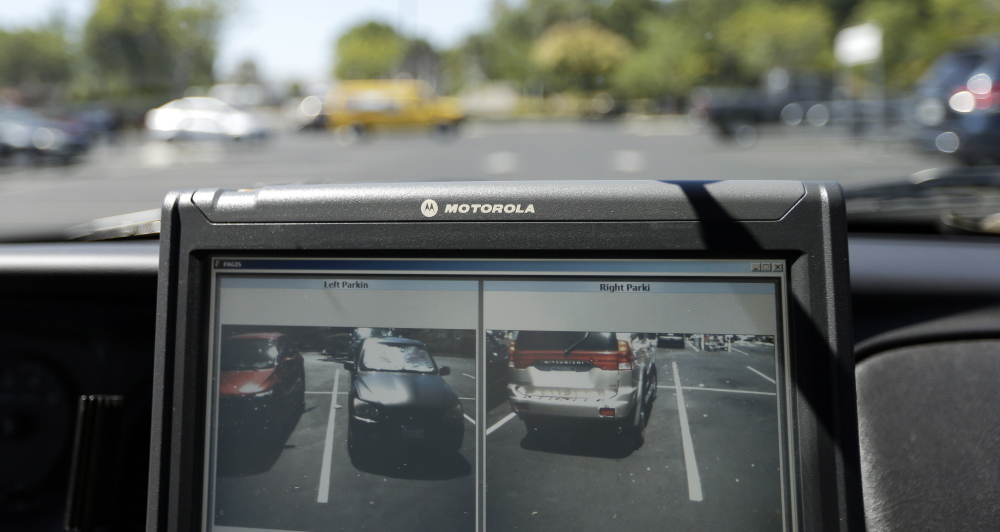AUGUSTA — City councilors on Thursday unanimously approved a proposal to seek grant money to buy an automatic license plate reader for the Police Department.
Officers will use the reader to identify stolen cars and vehicles driven by wanted criminals.
The proposed $49,000 grant from the state Department of Economic and Community Development also would help pay to expand “hot spot” actions in which officers focus on high-crime areas, and it would restart a Drug Abuse Resistance Education program in local schools. Councilors voted unanimously Thursday to seek the state Safe Neighborhood Grant Program money.
Police are also seeking the money to help reduce illegal drug activity and associated crimes in low-to-moderate-income areas via three approaches.
One would be the purchase, for about $18,000, of the license plate reader to be installed in a police cruiser to read license plates as the officer drives along, a practice that has raised privacy concerns.
City Manager William Bridgeo said the device would not be used to accumulate data on individuals.
“This is not something that creates or maintains any kind of database,” he said. “It effectively does what a police officer would do, running a plate. The only difference is it does it faster. So if folks have privacy concerns, which is certainly legitimate, they should know we’re not purchasing any type of equipment that’d allow us to maintain data on a permanent basis.”
Bridgeo said the devices are used in other communities in Maine, including South Portland, and have been around nationally for about 10 years.
The officer using the device would be alerted when it identifies the license plate of someone sought by police, or who is the subject of warrants, or who has a history of illegal drug activity, according to Jared Mills, deputy police chief. Mills said two officers would be involved – one driving, the other observing the license plate reader.
Mills said the device would be helpful in that officers receive numerous reports about people wanted by other police agencies and those with arrest warrants. There are so many such reports that it’s impossible for officers to remember them all, let alone compare the license plates of vehicles to those being sought. The new technology would do that automatically.
However, the devices have been controversial when put into use elsewhere.
In response to concerns about privacy, and data from the plates potentially being compromised, Maine passed legislation in 2010 that limits the development of databases using license plate readers and requires collected data to be purged every 21 days if it’s not related to an investigation, according to the American Civil Liberties Union of Maine.
The organization still sees the technology as a threat to Fourth Amendment rights, which include the right of people to be secure in their persons, houses, papers and effects from unreasonable search and seizure.
“Maine has some privacy protections on the books, but even the best laws won’t always protect us from leaks of our personal information,” Oamshri Amarasingham, advocacy director of ACLU of Maine, said in an emailed statement Wednesday. “If the city of Augusta is prepared to invest in this technology, it must also be prepared to guarantee appropriate oversight and privacy protections for its citizens.”
Keith Edwards can be contacted at 621-5647 or at”
kedwards@centralmaine.com;
Send questions/comments to the editors.



